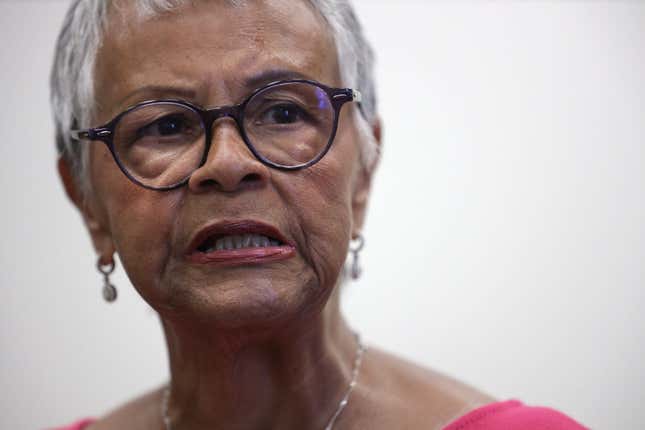
As of right now, almost half of the prison population is comprised of those found guilty of drug offenses. A total of 51% of inmates are at a minimum or low-security prison. Given the ongoing COVID-19 outbreaks occurring in places such as Wisconsin, Pennsylvania, and New York, it makes sense to have some home confinement system. Through the CARES Act in April 2020, eligible inmates served their sentences at home with parameters and guidelines given the pandemic.
That provision was due to expire as per a memo by the Trump Administration, which stated that all inmates in the program had to return to prison. Just last week, Attorney General Merrick Garland announced a reversal to that policy. There is one congressional representative that is also on board with these changes.
U.S. Rep. Bonnie Coleman Watson spoke to The Hill and agreed with Garland’s decision.
“We knew this even before the pandemic, but the pandemic required us to act in a different way,” she added. “One of the results of the pandemic was to try to de-incarcerate those individuals who were not a harm to society, who were low-level offenders and to get them out of the prison system because of the threat of the pandemic.”
The congresswoman also said that the entire criminal justice system “is ripe for the kind of review” into having someone “pay for whatever infraction it is that they are accused of and convicted of” while also considering “rehabilitation” and providing “a second chance.
This week, the head of NYC corrections said that 17% of prisoners were positive for COVID-19. That’s not just bad for the prisoners. Everyone who works there has a higher chance of getting infected and bringing it home. It makes sense, not only from a prison overcrowding solution but for public health reasons, to keep this system going. We have a real chance of updating our prison dynamics in America other than just throwing low-level offenders in a cell and forgetting about them.
Even Garland himself echoes these sentiments:
“Thousands of people on home confinement have reconnected with their families, have found gainful employment, and have followed the rules,” Garland said in a statement. “We will exercise our authority so that those who have made rehabilitative progress and complied with the conditions of home confinement, and who in the interests of justice should be given an opportunity to continue transitioning back to society, are not unnecessarily returned to prison.”

